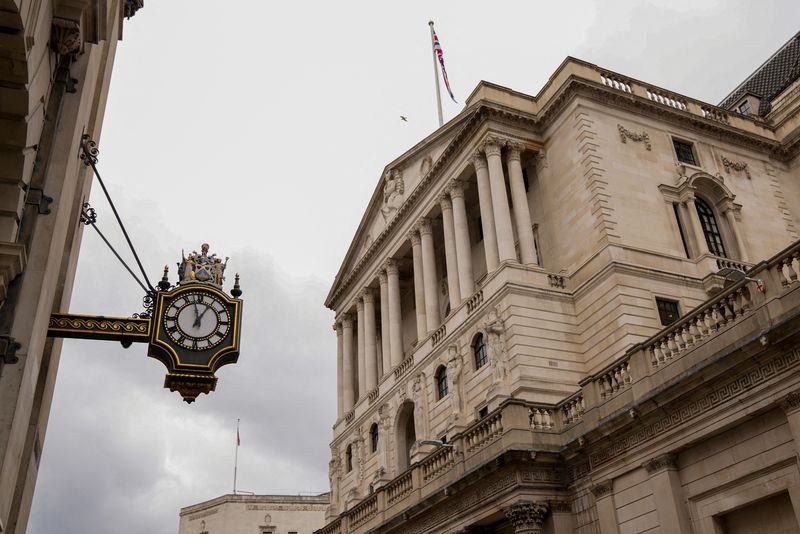Bank of England policymakers split on when to cut rates
2024.07.24 07:55
LONDON (Reuters) – Bank of England Chief Economist Huw Pill said earlier this month that it was an open question whether the BoE would cut interest rates on Aug. 1, despite inflation returning to its 2% target, as underlying price pressures showed “uncomfortable strength”.
In June, the BoE’s Monetary Policy Committee voted 7-2 to keep interest rates at a 16-year high of 5.25%. Deputy Governor Dave Ramsden and external MPC member Swati Dhingra backed a cut to 5%.
Financial markets see a roughly 45% chance that the BoE will lower rates to 5% at its next meeting, and price in just under 0.5 percentage points of rate cuts by the end of 2024 – less than is expected from the U.S. Federal Reserve.
Following is a summary of comments by MPC members since their last rate decision was published on June 20.
HUW PILL, CHIEF ECONOMIST
July 10: “I think it’s still an open question on whether the timing for a rate cut is now.”
“At annual rates still not far from 6%, annual services price inflation and wage growth continue to point to an uncomfortable strength in those underlying inflation dynamics.”
“But the latest data also remains consistent with the view that these inflationary pressures have now been contained, and may be starting to revert towards levels that are more consistent with the achievement of the inflation target.”
JONATHAN HASKEL, EXTERNAL MPC MEMBER
July 8: “The labour market continues to be tight, and I worry it is still impaired.”
“I would rather hold rates until there is more certainty that underlying inflationary pressures have subsided sustainably.”
CATHERINE MANN, EXTERNAL MPC MEMBER
July 10: “Until I see some deceleration, sustained deceleration in services (inflation), I really am not in a position (to vote for a rate cut).”
SWATI DHINGRA, EXTERNAL MPC MEMBER

July 15: “Now is the time to start normalising (interest rates) so we can then finally stop squeezing living standards the way we have been to try and get inflation down.”
“I don’t see some kind of consumption boom and if we’re going to start moderating from the very high level of interest rate that we are at now … it is going to take some time for that to happen, for us to moderate it as well as for that to then feed into the real economy.”








